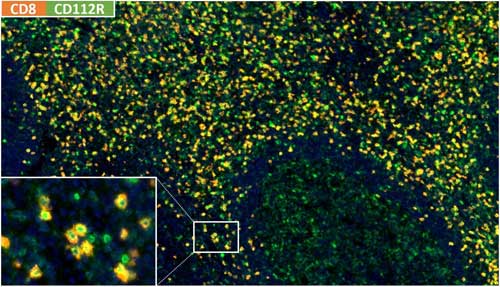
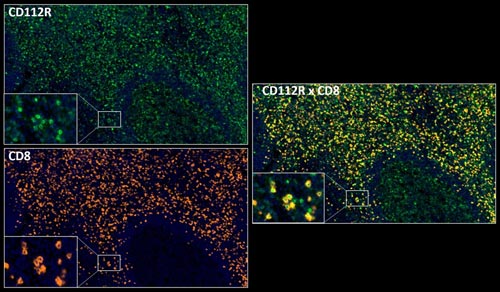
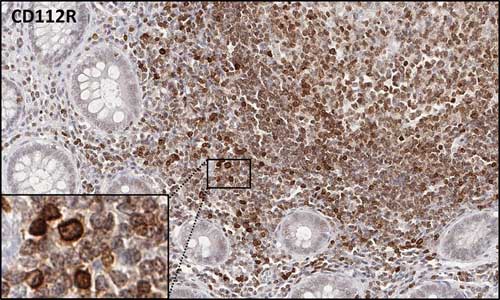
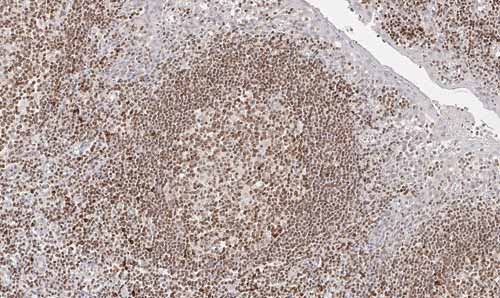
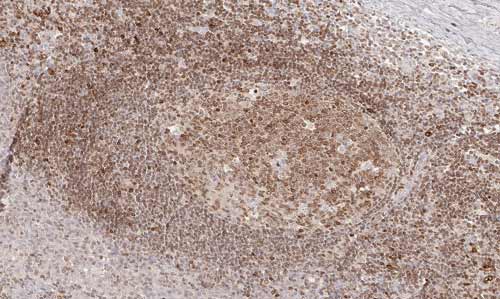
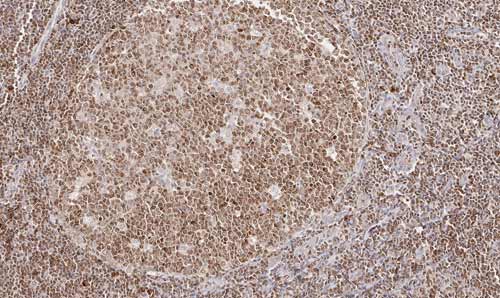
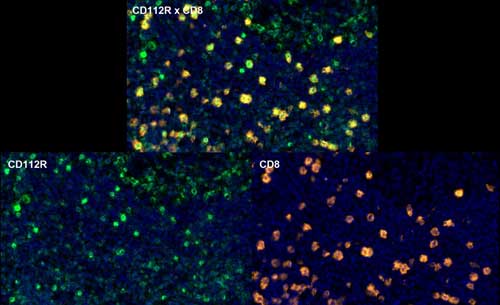
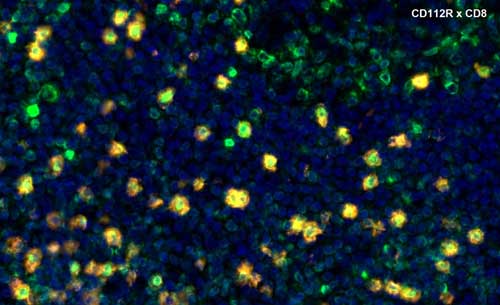
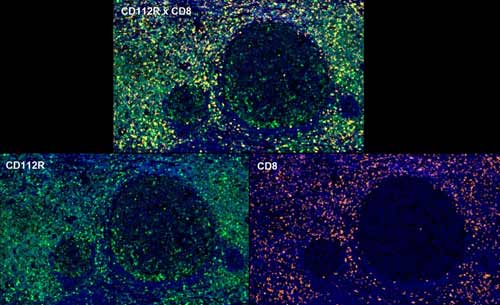
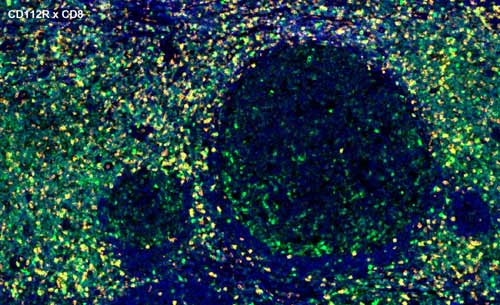
-
SKU DIA-R12 Specificity CD112R/PVRIG
Species Reactivity Human
Immunogen Synthetic peptide of human CD112R
Host Species Mouse
Isotype IgG1/k
Clone R12
Clonality (Mono-/Polyclonal) monoclonal
Application Immunohistochemistry (IHC), Immunohistochemistry (Paraffin-embedded Sections), Western Blot
Conjugation unconjugated
Dilution Immunohistochemistry (IHC): 1:100 – 1:200
Format 0.05% NaN3, 2% BSA, in PBS (pH 7.4), lyophilisate, purified antibody (from culture supernatant)
Product line / Topic Immuno-Oncology, Tumor Marker / Biology
Intended Use for Research Use Only
Temperature - Storage 2-8°C
Temperature - Transport at room temperature
Search Code CD112R, IHC, FFPE, Paraffin, PVRIG
Manufacturer / Brand ONCOdianova
Uniprot_ID Q6DKI7
Gene_ID 79037
Alias C7orf15, CD112 receptor, CD112R, Poliovirus receptor-related immunoglobulin domain-containing protein, PVRIG, Transmembrane protein PVRIG
- Anti-CD112R antibody clone R12 validated for fluorescence multiplex immunohistochemistry
Anti-PVRIG/CD112R clone R12 has been developed for detection of CD112R in routine formalin-fixed paraffin-embedded tissue specimen (IHC FFPE). Clone R12 displays no background in epithelial cells and in non lymphoid cells and has been validated for sensitivity and specificity in different normal and tumor tissues. Clone R12 has been validated for use in bright field immunohistochemistry and for multicolor immunofluorescence (fluorescence multiplex IHC). Clone R12 is ideally suited for multiplexed immunohistochemistry studies of CD112R in human tissue specimen because of its inherent high signal to noise ratio.
CD112R, a member of poliovirus receptor–like proteins, is preferentially expressed on T-cells and inhibits T-cell receptor mediated signals. Blockade of the CD112R-CD112 interaction enhances T cell response. CD112, the ligand for CD112R, is widely expressed on tumor cells and on antigen-presenting cells. CD112R acts as a co-inhibitory receptor for T cells by its ability to compete with CD226 to bind to CD112. Blockage of the CD112R-CD112 interaction enhances human T cell response.
TIGIT and CD226 constitute a T cell co-signaling pathway in which CD226 and TIGIT, respectively, serve as costimulatory and co-inhibitory receptors for the ligands CD155 and CD112. This TIGIT signaling axis includes a complex receptor ligand system with the marker CD112R, which has become a promising target in cancer immuno-therapy.
-

Fig.01: CD112R (green) x CD8 (red) multiplex IHC, normal tonsil. 
Fig.02: CD112R (green) x CD8 (red) multiplex IHC, normal tonsil. 
Fig.03: Immunohistochemistry with anti-CD112R clone R12, normal tonsil. 
Fig.04: Immunohistochemistry with anti-CD112R clone R12, normal tonsil. 
Fig.05: Immunohistochemistry with anti-CD112R clone R12, normal tonsil. 
Fig.06: Immunohistochemistry with anti-CD112R clone R12, normal tonsil. 
Fig.07: CD112R (green) x CD8 (red) multiplex IHC, normal tonsil. 
Fig.08: CD112R (green) x CD8 (red) (merged) 
Fig.09: CD112R (green) x CD8 (red) multiplex IHC, normal tonsil. 
Fig.10: CD112R (green) x CD8 (red) multiplex IHC, normal tonsil




 MSDS_ONCOdianova_V02
MSDS_ONCOdianova_V02